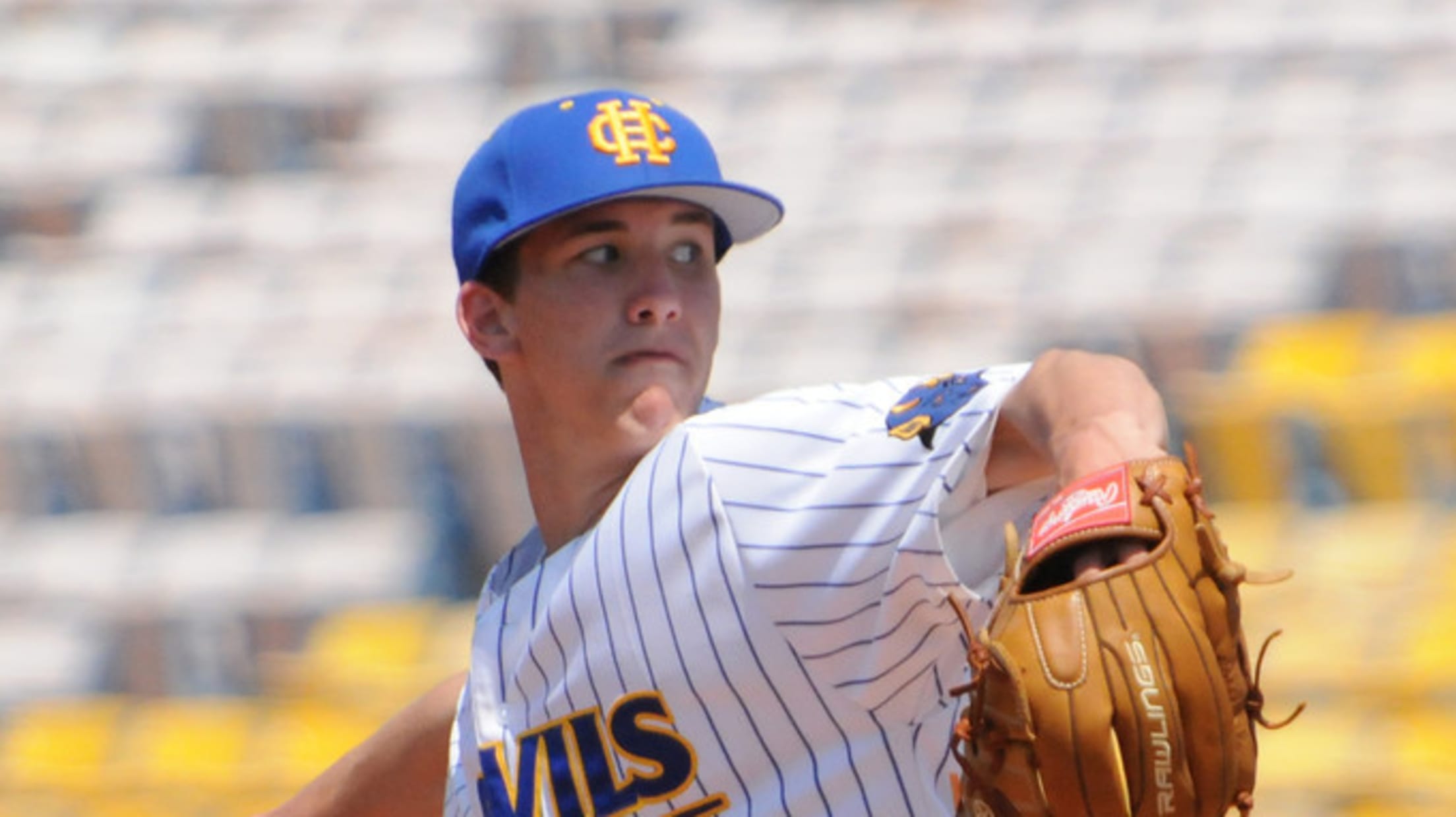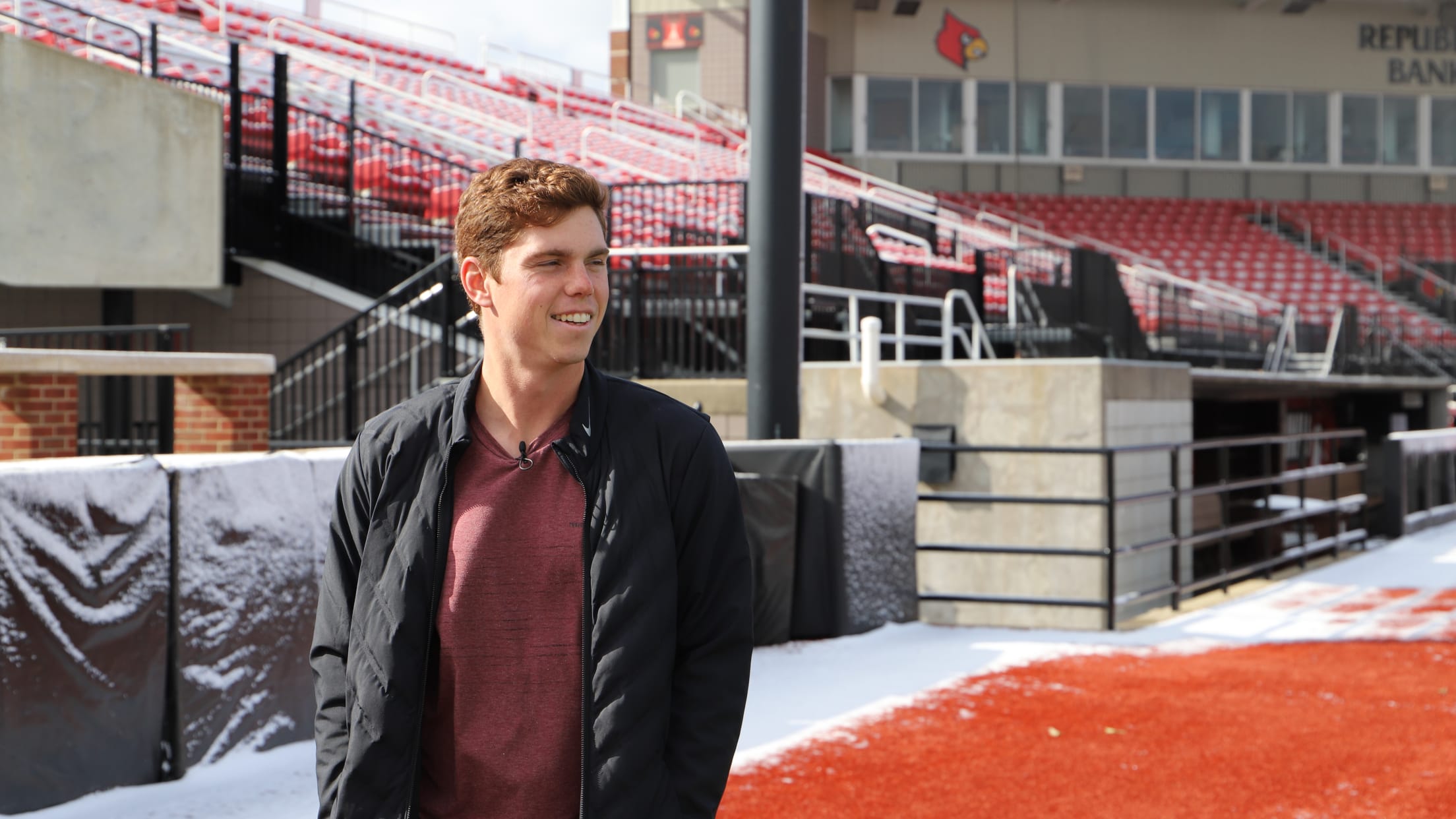
Hometown Series: Will Smith
The collage of Kentucky Derby winners plastered along the diner walls of Wagner’s Pharmacy leaves no uncertainty of its location across the street from Churchill Downs. To get to the restaurant in the back, one must walk past the sign advertising horse parking for 5 cents and the schedule of University of Louisville and University of Kentucky basketball games, through the general store and gift shop and beyond the photographs of famous figures who’ve graced the Louisville staple through the years.
There, in a quiet corner across from the counter, Dodger catcher Will Smith is enjoying a patty melt on an offseason afternoon at his favorite breakfast and lunch spot, explaining how to properly say the name of the place where he grew up. “Loo-iss-ville” is way off. “Loo-ee-ville” might even draw a look or two.
“Pronounce ‘Louisville’ like you have a mouthful of food in,” he explains between bites. “Loo-uh-vull.”
Smith’s parents are transplants to the city, but it’s always been home for Smith, who starred primarily as a pitcher and infielder at Kentucky Country Day School before excelling as a catcher at the University of Louisville en route to becoming a first-round pick and rookie Major League sensation, hitting a Dodger record 10 home runs in his first 25 games in 2019.
The even-tempered 24-year-old embraced the spotlight while letting his play emphatically announce his introduction to the Majors. Two of his first three home runs were walk-offs. He collected 19 RBIs in his first 14 career games, setting another Dodger record in the process and earning the primary starting job behind the plate. “The Fresh Prince” began to garner more and more attention, particularly in Los Angeles.
Back home, though, despite the numerous accolades, the 5-foot-10 phenom can still roam largely under the radar. Aside from one Wagner’s customer – a man Smith recognizes from his Louisville baseball days — and a hostess who adds Smith’s photo to the wall of fame as he leaves the restaurant, he goes undetected.
It's exactly how he likes it.
“It’s a much slower, quieter pace,” says Smith, who recently bought a house in Louisville with his fiancée. “I can relax here. I don’t feel much pressure to kind of live up to the hype or anything. It’s home.”

At a time when Will Smith’s age was counted in months rather than years, one memory in particular stands out to his father, Mark Smith.
A toy with a spring that hung on the doorway let Will’s parents know they might have an athlete on their hands.
“He could bounce,” Mark recalls. “He’s 9, 10, 11 months old, and he would get that thing going and go three feet off the ground bouncing up and off the walls just cackling and giggling. That’s one of my really fond memories.”
The other was Will always had a ball or a stick in his hand.
When he wasn’t inside shooting on his Fisher-Price basketball hoop, the majority of Will’s time as a child was spent outside, where he could hit with a plastic bat in the backyard. Across the street in the Douglass Hills neighborhood where Will grew up was a school where he’d throw baseballs or hit golf balls with his father, who eventually ended up his St. Matthews Little League coach.
“My dad’s work ethic really rubbed off on me, just from anything — seeing how he did yardwork, to seeing how he went about his job,” Will says. “It was always do the job correctly and clean up after it, whatever it is, and do it the best you can.”
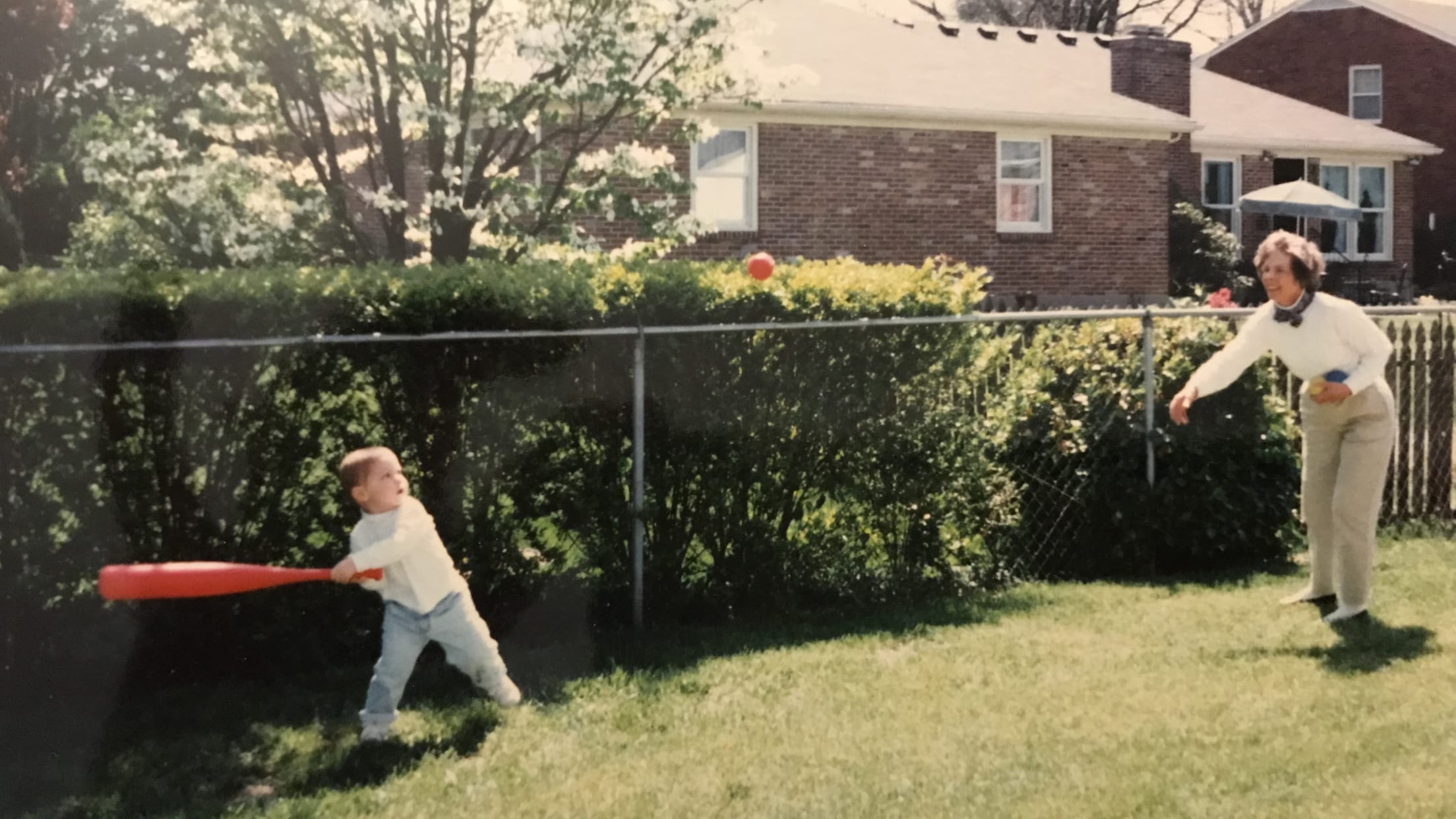
While Will’s father coached him in baseball, he wasn’t the type to force his son to stick to one sport. Mark believed strongly in “letting kids be kids.”
That concept applied off the field, too. If Will had an interest, his parents encouraged him to explore it. He tried guitar lessons. He would go through phases of playing video games non-stop for a couple weeks at a time. But the constants were always sports and the outdoors, and the area he grew up provided access to plenty of both.
He liked to ride bikes, play basketball and swim at the community pool. He ran cross country in the fifth grade, because that was the only sport his school offered at that age. Two hours away was the Red River Gorge, where Will and his family would go hiking every year. On spring breaks, the Smiths traveled to Will’s grandfather’s house in Florida, where they’d take boats out on the water. Will observed diligently and figured out how to drive the boats, an activity he still enjoys in the offseason on his way to fishing or hunting.
“He was a very determined little baby and boy, independent always,” says Will’s mother, Julie Smith. “He always had to do things himself. He was quiet but always listening and very observant. He didn’t talk a lot, but when he would say something, it had a lot of impact and a lot of thoughtfulness behind what he would say.”
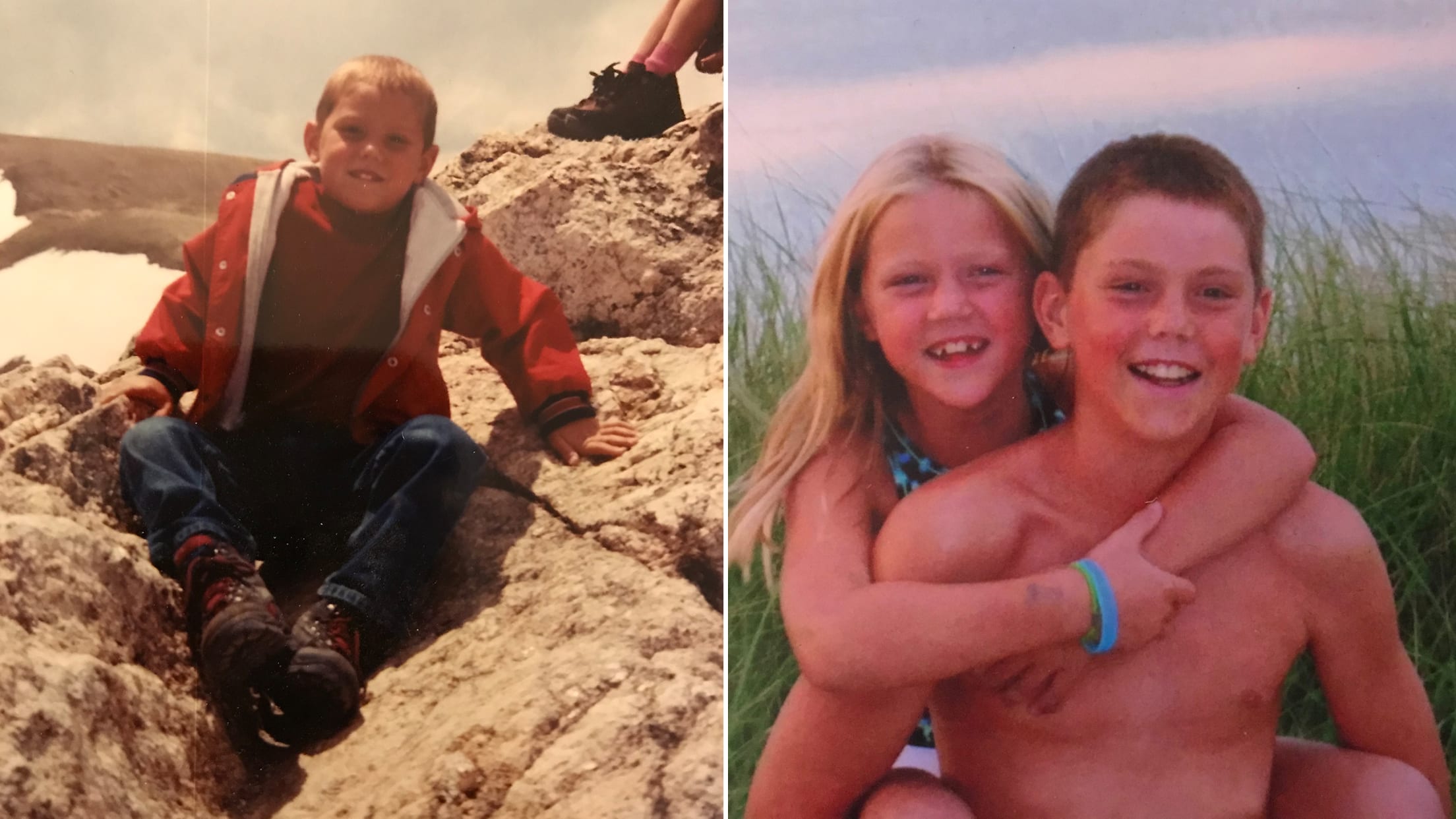
Those qualities would serve him well in the classroom, where Julie says Will was among the more reserved but harder-working students. She would know, having worked at Kentucky Country Day — Will’s kindergarten through 12th-grade private school — for more than 30 years. The long-time first-grade teacher is now a school counselor. She always took pride in hearing about how hard Will studied — be it in the film room as a Major Leaguer or in the classroom as a middle schooler.
“One story I think about is when he was in eighth grade, he decided he wanted to get into the advanced math program for the high school, so he did all these extra classes,” Julie says. “He was just determined to do that. It was not something that we were driving him to do. It was sort of like he came home and announced he was going to make it, and he did make it. So he set those kind of goals, always, for himself.”
That determination carried into sports. By the age of 5, Mark says Will had already played his first nine holes of golf. Baseball came naturally, too. As a second or third grader, he’d already impressed his eventual coach at a festival.
“Kids would turn in a ticket and get to throw a few balls and see how hard they could throw,” recalls Joe Maione, Will’s high school coach at Kentucky Country Day. “At that age, I joked around, he could’ve been the third- or fourth-hardest throwing pitcher on our varsity team when he was that young.”
It wasn’t much longer before Will was pitching for Maione’s high school team as a middle schooler, but he could do much more than pitch. He had his dad to thank for that, at least in part. During Little League, Will says his father was more concerned with his players understanding the fundamentals of the game than wins or losses. He would rotate players around constantly.
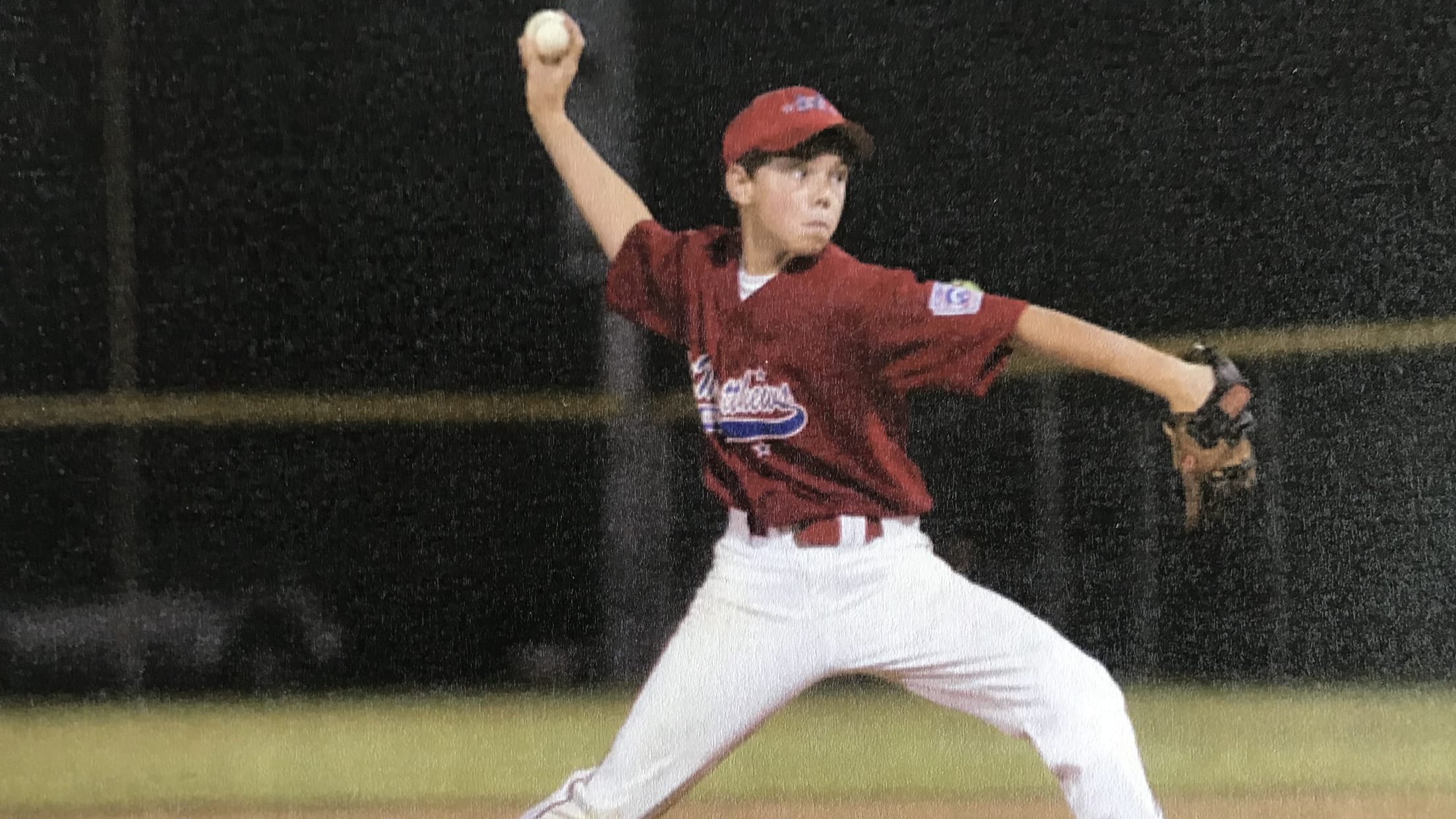
“Literally, we’d play one position one inning, the next we’d play somewhere else,” Will says. “He made sure everyone got at least an inning in the infield and an inning in the outfield if he could.”
Will’s team won state when he was a 10-year-old. He made the All-Star team three straight years from the ages of 10–12, which is around the time he says he started to fall in love with the game. He was in love with golf, too, but baseball came more naturally and he felt he could go further with it.
Maione saw the same thing.
Once Will reached middle school, he started going to the batting cages with older kids at the school. By the seventh grade, he was playing third base and pitching in relief for the varsity high school team.
“You’re going against a guy with a beard, a senior in high school,” Will says. “It’s like, ‘I’ve got to bring it now. I’ve got to grow up.’”
Despite Will making an instant impact with his bat (he remembers hitting somewhere between .260 and .270 as a seventh grader, while Maione remembers it closer to .300), he also endured some early growing pains. One game in particular stands out to both Will and his father.
“We were playing a team in Danville, and he was in seventh grade and they had a pretty good baseball program,” Mark begins. “We had used I think our best pitcher, he was a senior, and Will had to pitch the second game. He was just barely 13 years old and he wasn’t hiding the ball real well and they could see what he was throwing. I still tease him today, there was a kid who hit a ball that’s still flying.
“He stuck it out, never showed any emotion. Just kept throwing. He finally came out of the game and all he did was kind of flutter his lips. It wasn’t ducking his head, anything. It was like ‘OK, go on to the next one, see what happens.’”
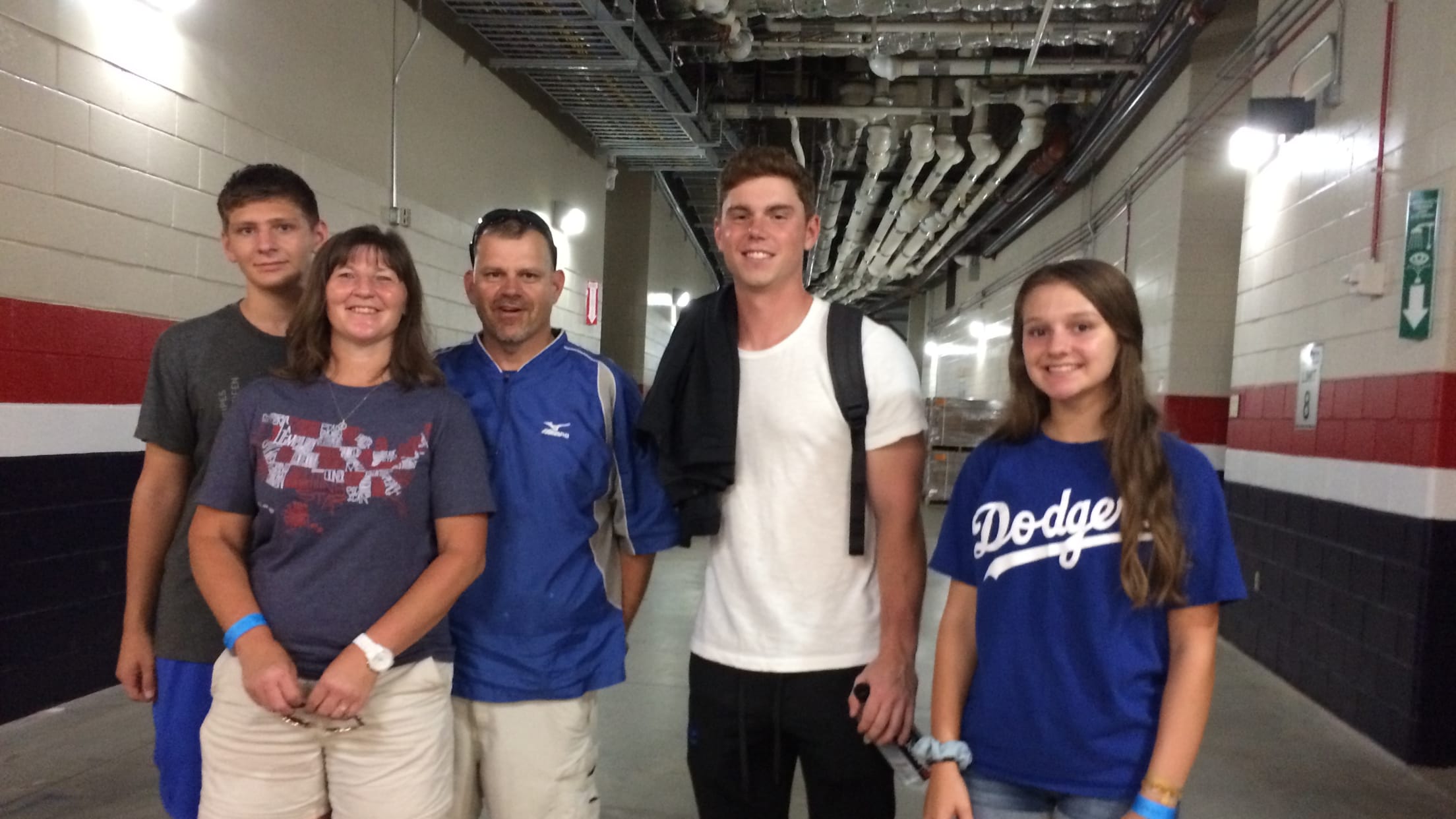
Will would go on to hit over .400 one year later. As his high school career continued, he’d end up the No. 5 player in the state, according to Prep Baseball Report.
But that Danville performance remains cemented in his mind, as if it still motivates him.
“They absolutely destroyed me,” Will says. “I was tipping my pitches badly, and they knew it, and I didn’t know that. So they took advantage of it. After the game, their coach came up and told our coach, ‘Hey, this kid’s going to be pretty good, but this is what we had on him, fix it.’ I learned quick to not do that.”
When Will thinks about the people who made the biggest impact on his career at an early age, the first person he thinks of outside of his immediate family is Maione, whose willingness to challenge him early forced him to grow. He says that experience as a seventh grader made him comfortable in uncomfortable situations against players who were older and more experienced — a trait that would translate when he blasted 15 home runs in his first Major League season.
Maione, who has since moved from Kentucky to North Carolina to Virginia for athletic director opportunities, never hesitated to give Will that opportunity. He calls him the hardest-working kid he’s ever coached.
The statistics of the two-time all-state player, who went on to hit .528 with 11 home runs with a 0.87 ERA on the mound as a senior, backed that up.
“I’ve done this for a long time and you coach different types of kids all the time, but he was one of those kids that was special that don’t come around very often,” Maione says. “There’s a lot of talent, very humble, and the work ethic that matched.”
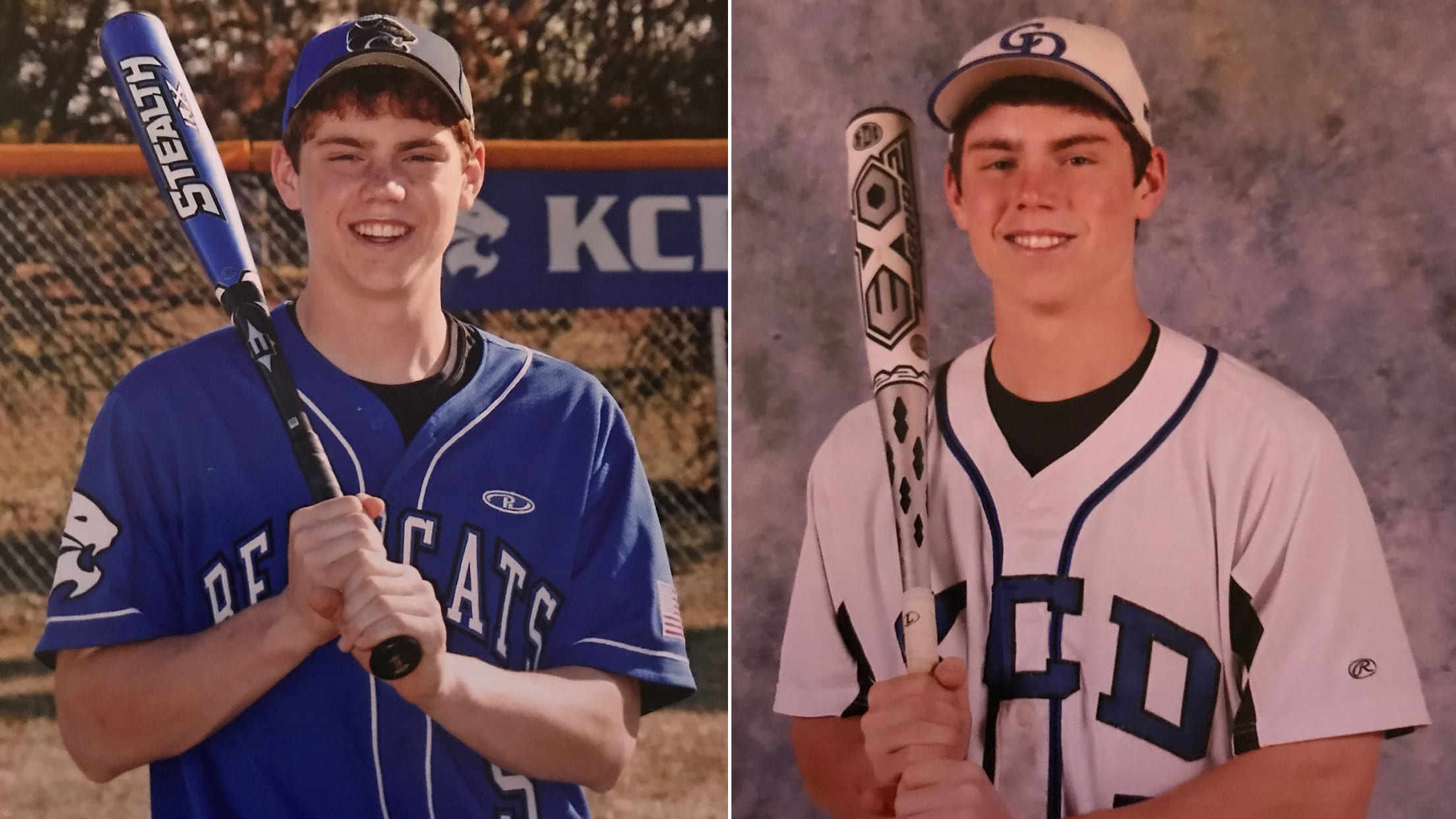
Those close to Will say he’s always possessed his calm demeanor on the field, but it’s juxtaposed with his disdain for defeat. His father says he hates to lose more than he likes to win.
He does well hiding it, but there are signs Mark knows to look for. In high school, Will’s father would stay in the booth with a radar gun to make sure Will’s arm wasn’t losing speed as the game continued.
“I could tell sometimes when he would get upset at an umpire, because he’d throw the ball harder,” Mark says. “He’d get a little irked for making a bad call or something like that.”
One occasion in particular stands out.
“He got irked at an umpire in the last inning, called a crazy balk on him, and he’d been throwing the ball in the mid-80s the whole game,” Will’s father says. “His last three pitches were 91–92–91 [mph].”
With an arm like that, it was clear college baseball was in Will’s future. It just wasn’t clear where. He initially wanted to get away and experience life away from home. Playing for the University of South Florida became a possibility.
But the University of Louisville came calling. Will knew how strong the program was and how much the school meant to Louisville’s residents, particularly in a state without any pro sports. The Cardinal coaches saw his potential, even if his success came at a small school — Will says he graduated with 80 students — and primarily at positions other than the one Louisville’s coaches envisioned.
“He was the star shortstop, the star pitcher, the star catcher,” says Louisville head coach Dan McDonnell. “But you can only play one position at a time.”
Will enjoyed the challenge of hitting, and he was open to transitioning full-time to catching, which is where Louisville’s staff thought Will could best utilize his athleticism. The coaches say they envisioned their version of a Buster Posey. Years later, while Will was setting rookie records in 2019, Dodger manager Dave Roberts would make the same comparison.
Will still calls his college choice the toughest of his life, but after seeing the Louisville facilities and meeting the coaches, he felt it was a perfect fit.
“Luckily,” Will says, “it was a good decision.”
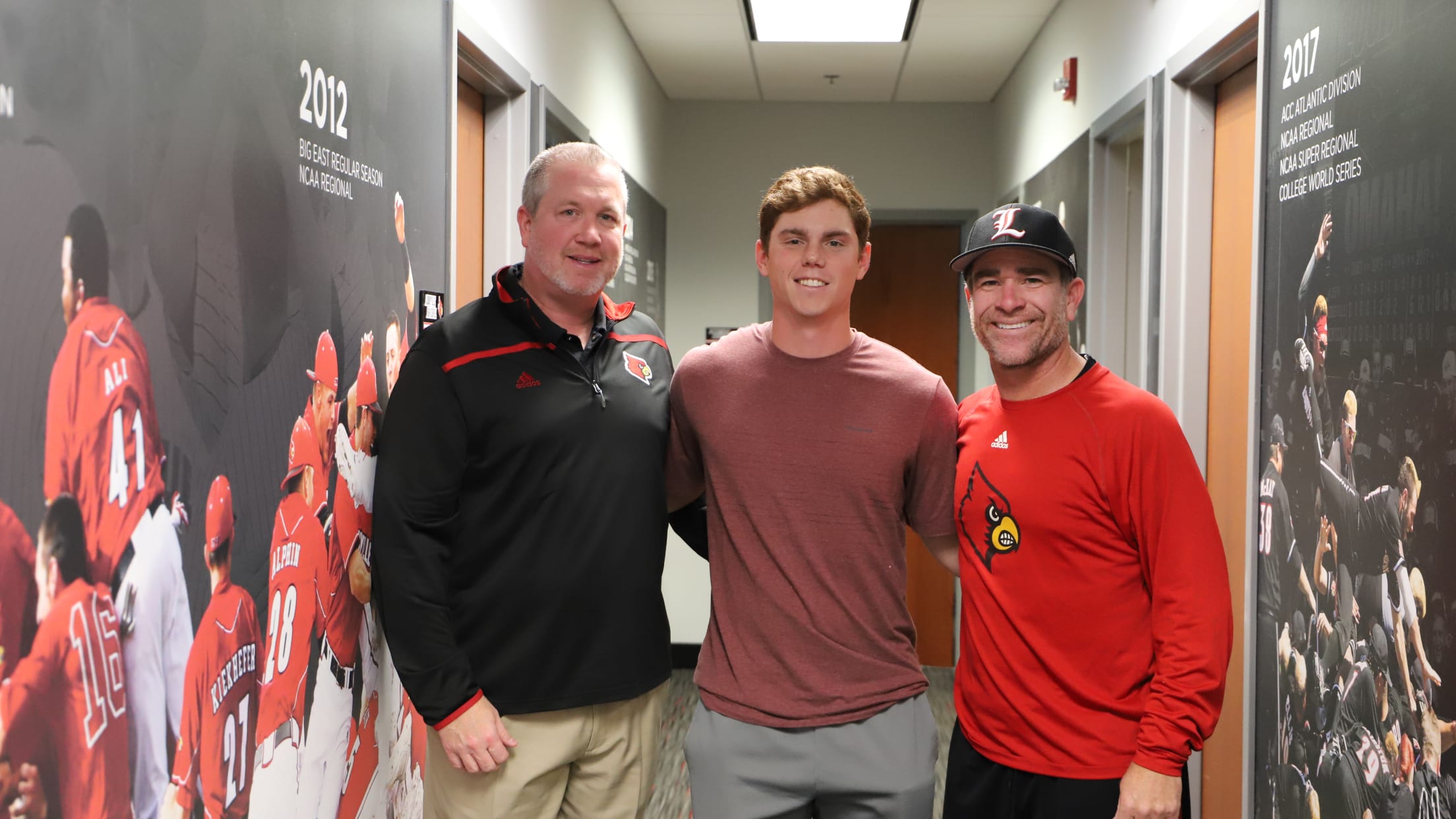
As Will scans the University of Louisville’s snow-covered baseball stadium on a chilly November day, a number of memories return — the January scrimmages, where the snow made it hard to see and the piercing cold made it harder to swing; the home run his sophomore season in the Super Regionals against Cal State Fullerton; the crescendo of the crowd’s cheers as the games picked up in importance on the road to Omaha.
Will didn’t need to wait long to get to the College World Series. He fondly recalls the dogpile on his home field at Jim Patterson Stadium after beating Kennesaw State in the NCAA Super Regional his freshman year. Even then, with multiple upperclassmen ahead of him on the depth chart, he found a way on the field in 39 games.
“There was no entitlement,” McDonnell says. “He never acted like it was supposed to be given to him. As a freshman, he blended in with two senior catchers. He knew his place but competed, worked hard and it was just fun to see him get better each year.”
Like that seventh-grade year at Kentucky Country Day, it would take some grooming to reach his stride. Will went homerless his freshman year while hitting .221 at the plate. Then Louisville hired Eric Snider as its hitting coach from the University of Illinois.
“I think a lot of the reason why I got drafted and the reason why I’m a pretty good hitter now is because of him and the work he put in with me,” Will says.
What Snider remembers first from seeing Will is his natural throwing action behind the plate. But what he remembers most is his willingness to learn.
In the batter’s box, Snider noticed Will tended to land too hard on his front side with his front knee bent. The two went to the cage and firmed up his front leg.
“For me, that was the point where he started to take off offensively,” Snider recalls.
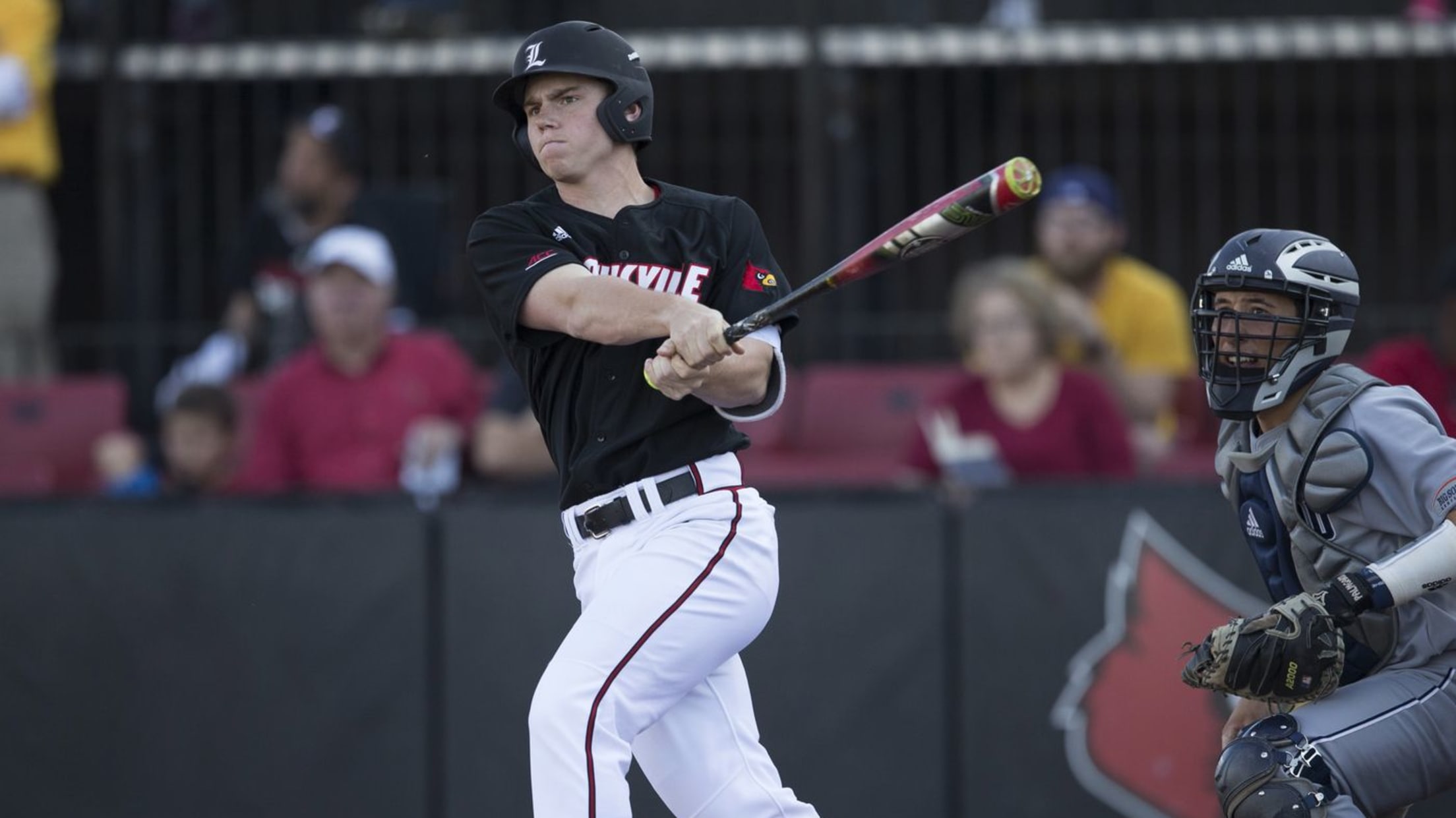
From his freshman to sophomore year, Will raised his batting average 21 points while hitting the first two homers of his college career. Then came the colossal leap offensively in an All-ACC junior season that saw him hit .382 with seven home runs. His Draft stock soared.
“I guess it really hit about halfway through his junior year when they were thinking 10th, 11th round,” Will’s father recalls. “All of a sudden, every Major League team has interviewed him, and it’s like, ‘Oh, wow, he might actually do this.’ Then the last two weeks were just nuts, as far as before the Draft.”
On Draft day in 2016, the school brought its players in for a pizza party. Louisville outfielder Corey Ray went fifth overall to the Brewers. Louisville pitcher Zack Burdi went 26th overall to the White Sox.
With the 32nd overall pick, the Dodgers selected Will Smith.
“We always thought Will had a very high ceiling in the game,” says University of Louisville director of baseball operations Brian Mundorf, who’s been with the Cardinals program since 1996. “Can I sit here and say I thought he would be a first-round Draft pick? Maybe not. But if you watched Will Smith at practice every day and watched his growth as a player and watched him get better each and every day over the course of his three years, we knew the sky was the limit. We knew that Will had tons of ability, and his desire to be great I think is what separated him.”
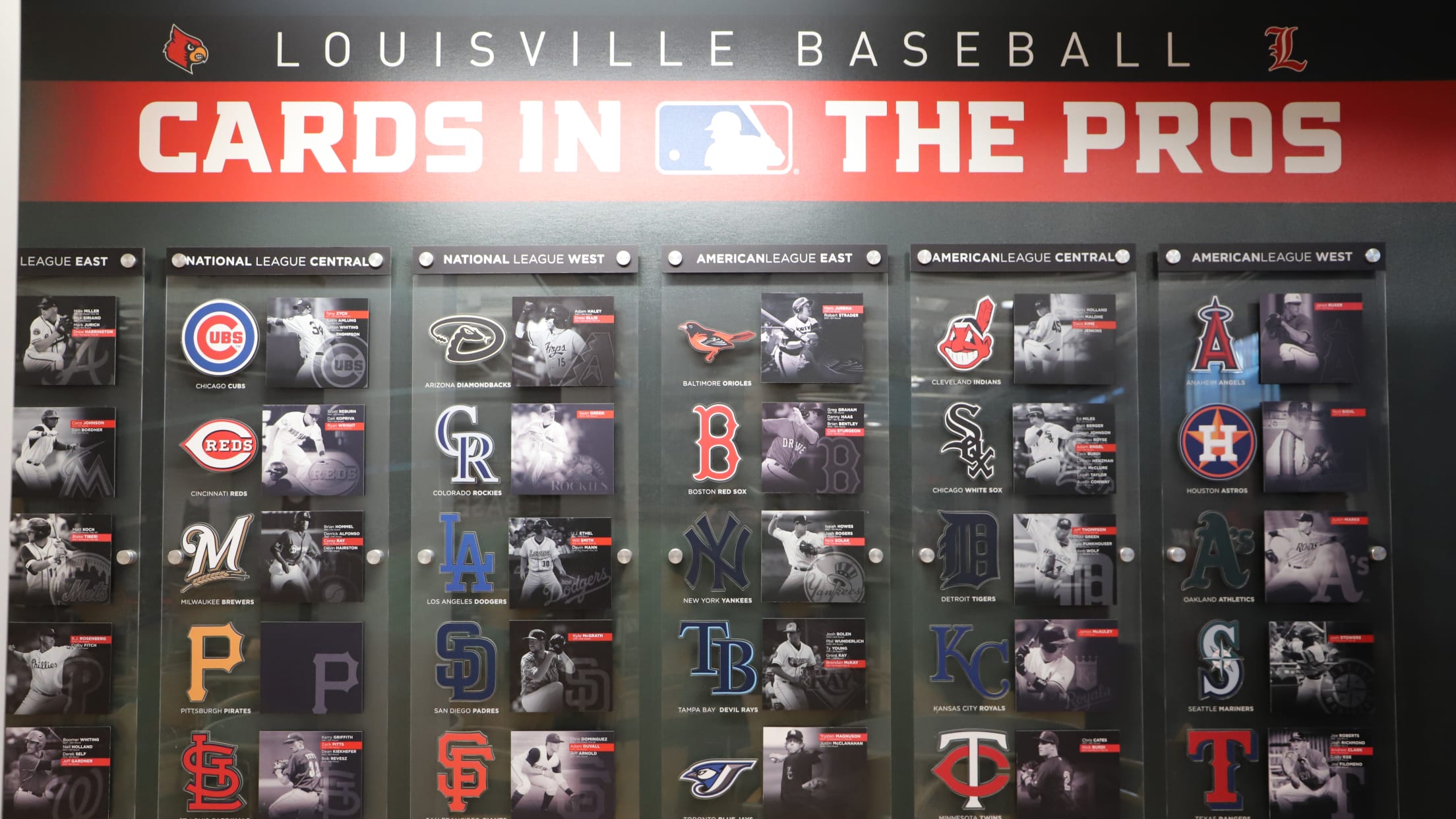
Pro players are encouraged to return to the University of Louisville as often as they’d like. The gym, the weight room, the batting cages and even the indoor football field are available. Will continues to take advantage of the space, along with about five to 10 other pro players each offseason. A fingerprint gets him access anywhere he wants.
The main cages are known as “the hack shack.” Will spent hundreds of hours there in college — a total he’s still adding to today.
“There were countless times I came in at 10 o’clock at night and just hit on my own on the machine,” he says. “Now in pro ball, I spend probably 10 hours a week in here in the offseason hitting — hour and a half at a time, six days a week.”
As Will’s family, friends and coaches stay up into the late hours of the night watching him play on the opposite coast, the same calm, quiet, steadfast resolve and confidence Will’s parents noticed from a young age — the traits Maione saw at Kentucky Country Day and McDonnell, Mundorf and Snider witnessed at the University of Louisville — remain, pushing Will forward.
“He’s the same guy he was at 18 years old,” Mundorf says. “He knows that he hasn’t made it yet, and I think because of how humble he is and how driven he is, that success will continue for Will Smith.”
